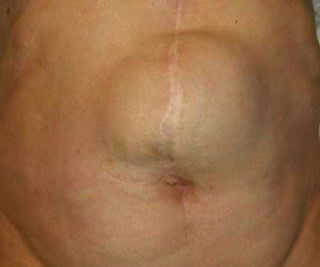
Hernia is defined as a condition in which part of an organ is displaced and protrudes through a wall of a cavity containing it.
Hernias are inherently a surgical problem.
The million dollar question today is:
Can hernias be treated by supplements and other means except surgery? You can guess the answer. I hope this article will bring a few things to light.
Abdominal hernias commonly occur at different sites of the abdomen as illustrated below.
Hernias can be asymptomatic or symptomatic.
Symptomatic hernias can get complicated and incarcerated characterised by abdominal pain, vomiting, and intestinal obstruction symptoms (pain, vomiting, absolute constipation and distension).
What causes hernias, what’s the problem underlying hernias?
The background of hernias roots back to repetitive stress, increased intrabdominal pressure due to chronic cough, constipation and masses within the abdomen.
Other risk factors include previous surgery, congenital soft tissue diseases and vitamin C deficiency.
These factors influence hernia formation in areas where some structures of the abdominal wall are thin or weak. This is common in the groin where the rectus sheath (part of the abdominal wall) is thinner than normal.
Congenital disease states especially Ehlers-Danlos and Marfan syndromes and acquired vitamin C deficiency increase the risk for inguinal hernia due to weaker anterior abdominal wall structures.
Incisional hernias are due to secondary failure of closure of abdominal wall following surgery.
Other types of abdominal hernia follow the same pattern through exploiting the natural openings (foramen) e.g. inguinal canal for indirect inguinal hernia, femoral canal for femoral hernia, umbilical ring for umbilical hernia.
Basing on this background, it is unlikely that supplements can effectively cause closure of these structural defects. In cases where vitamin C deficiency, zinc and other micronutrients have been noted in some structural defects, supplements can be helpful.
Important to note is symptomatic hernias need a professional evaluation to determine best mode of care.
Definitively, symptomatic hernias are best treated surgically to prevent recurrence. This does not mean that supplements are completely useless.
Supplements are good to promote faster recovery from surgery, rehabilitation of the body to have it prepared for surgery. The other advantages of supplements include management of certain micronutrient deficiencies that can be crucial in determining the outcome of surgery and general wellbeing.
In a nutshell, supplements are best used as supportive care in management of hernias. They should not replace surgery as definitive care for symptomatic hernias.















Comments